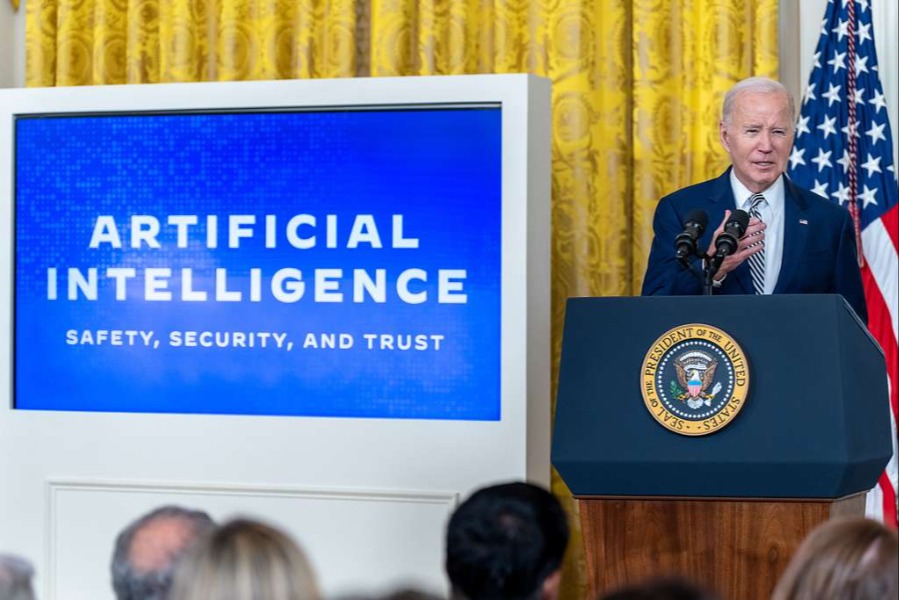Merrick Garland, National Security Lawyer
Judge Merrick Garland has some experience with what he is about to go through: being stonewalled by senators who profess to have nothing against him. Back in 1995, when he was nominated to the D.C. Circuit Court of Appeals, Senator Charles Grassley—now the Judiciary Committee’s Chairman—blocked his nomination for more than a year, all the while claiming he had no problem with Garland himself.
Published by The Lawfare Institute
in Cooperation With

Judge Merrick Garland has some experience with what he is about to go through: being stonewalled by senators who profess to have nothing against him. Back in 1995, when he was nominated to the D.C. Circuit Court of Appeals, Senator Charles Grassley—now the Judiciary Committee’s Chairman—blocked his nomination for more than a year, all the while claiming he had no problem with Garland himself.
It was this episode that first got me interested in—and appalled by—the judicial nomination process, a subject about which I have since written extensively. I wrote a great many editorials on judicial confirmations for the Washington Post and even wrote a short book on the subject in 2006, Confirmation Wars: Preserving Independent Courts in Angry Times.
I will not pretend to be unbiased on the subject of Merrick Garland. He is quite simply one of the very finest judges in the United States. I have urged his nomination at various times in the past—and indeed did so the afternoon that Justice Scalia died:
My vote to replace #Scalia: Merrick Garland. Advantage for #Obama: Confirmation possible. Advantage for #GOP: Confirmation not catastrophic.
— Benjamin Wittes (@benjaminwittes) February 14, 2016
On the merits: He's a very great, scholarly judge of tremendous intellectual gifts.
— Benjamin Wittes (@benjaminwittes) February 14, 2016
He is also a personal friend whom I’ve known for two decades.
In the coming days, you’re going to hear a lot of efforts to make Garland sound controversial. Don’t believe a word of it. No judge on any appellate court has greater regard from his colleagues appointed by the other party. You don’t need to believe me on this point. Consider this exchange between now Chief Justice John Roberts and Chuck Grassley—yes, the same Chuck Grassley who previously held Garland’s nomination hostage—in Robert’s confirmation hearing. In the exchange, Grassley questions Roberts about a False Claims Act case in which Garland had dissented from a majority Roberts joined. Roberts replied, “Any time Judge Garland disagrees, you know you’re in a difficult area.” Roberts then continued, “The view that you've articulated was certainly presented in a compelling way by Judge Garland,” and noted that “the function of his dissent, to make us focus on what we were deciding and to make sure that we felt we were doing the right thing, I think was well-served.” This is how judges spell R-E-S-P-E-C-T.
For present purposes, I want to highlight a feature of Garland’s career that will probably receive little attention in the mainstream press but is of abiding interest to readers of this site: he has extensive national security experience.
Last week, Lawfare hosted an interesting exchange between Lt. Col. Shane Reeves and Lt. Col. Winston Williams on one hand and Adam Klein on the other about whether the next Supreme Court justice should have expertise in national security law. Reeves and Williams wrote, “The Administration should nominate someone with a strong foundation in national security law to the current vacancy.” Klein responded, “it is more important that the nominee be a great jurist than a great national-security lawyer.”
Garland threads this needle elegantly: he is both a great jurist and has extensive and diverse national security experience. His experience in the national security space dates at least—and it may go back further—to the mid-1990s, when he ran the Justice Department’s Oklahoma City bombing investigation. This was by far the biggest terrorism investigation in U.S. history up to that point. At the time, Garland was the principal associate deputy attorney general, a position with a long, unwieldy title that masks its importance within the Justice Department. Garland was, in fact, the top aide to then deputy attorney general Jamie Gorelick. And this was a time of ferment in the relationship between law enforcement and the intelligence agencies, largely because of terrorism. Gorelick was attempting a certain degree of integration between spies and cops, the Justice Department faced major espionage cases, and it sought and received expanded surveillance authorities under FISA.
Nor is Garland’s national security experience limited to the 1990s. The post-9/11 world has given all D.C. Circuit judges a certain expertise in national security law. The court has been central to the development of the law of detention. It has heard major jurisdictional questions about Guantanamo. And it has heard major challenges in military commissions cases.
There are actually very few people who have a more diverse combination of judicial and executive branch experience in the national security space than does Garland.
This is not his leading qualification for the job of Associate Justice of the Supreme Court. But it is a feature of his resume, one that makes him qualitatively different both from other nominees available to President Obama and nominees Obama has advanced in the past. (To be sure, Justice Elena Kagan handled national security matters as Solicitor General.)
A couple of weeks ago, appellate lawyer Miguel Estrada and I wrote a piece in the Washington Post arguing that:
“The only rule that governs the confirmation process is the law of the jungle: There are no rules.”
....
“Today, there is no principle and no norm in the judicial nominations process that either side would not violate itself and simultaneously demand the other side observe as a matter of decency and inter-branch comity.”
I stand by this. That said, I think it would be profoundly stupid and self-destructive for Republicans to prevent Merrick Garland from getting a vote. As Miguel and I wrote, these fights are ultimately about power and nothing more elevated than that. So Republicans planning to block this nomination should ask themselves a simple power question: Will it play well or badly for us to block one of America’s finest jurists in order to hold the seat open for Donald Trump to fill?
My hint for Republicans: Back down now or this is going to end extremely badly for you.
The president has done very well today, both politically and in service to the country.





